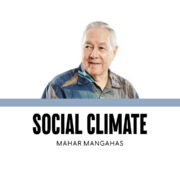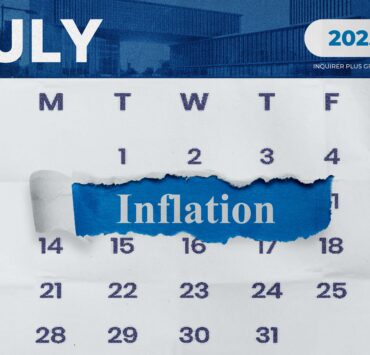A crisis of flood, food, and failed systems

It’s no small coincidence that the final round of negotiations for a Global Plastics Treaty is taking place just as the Philippines wraps up Disaster Resilience Month and Nutrition Month. But with streets still flooded and communities reeling from heavy rains, the timing feels less like coincidence and more like a wake-up call. What use are campaigns for health and disaster preparedness when the systems meant to feed and protect us are being undermined by a growing and ever-present threat: single-use plastic?
Plastic pollution is not just an environmental issue. It is a food, health, and climate crisis. As the impacts of the triple planetary crisis become more severe, climate change and plastic pollution stand out as deeply interconnected threats. Year after year, Filipinos are left to face the same consequences: submerged homes, displaced families, and lost livelihoods. And when the floodwaters subside, what’s left behind—plastic waste clinging to trees and tangled in drains—tells the story of a preventable disaster.
On roadsides and waterways, plastic waste piles up, revealing the gaps in existing policies and the grip of corporate interests. Big businesses continue to flood the market with single-use packaging, while shifting the blame onto consumers. While waste management has its place, it’s not the sole solution. No amount of segregation or personal discipline can offset the relentless production of throwaway plastics by corporations.
What we need are upstream solutions. Curbing plastic production at the source is more effective than cleaning it up after it spreads through our streets, rivers, and food. National bans on single-use plastics, strict regulations on production, and support for reuse and refill systems are both environmentally sound and cost-effective choices. The hidden toll of plastic dependence is paid by communities in the form of health risks, flooding, lost income, and disrupted lives.
Plastic contributes to floods not only by clogging drains but also by heating the planet. Its supply chain—from fossil fuel extraction to production—emits over 2 billion metric tons of greenhouse gases every year, worsening the climate crisis and intensifying storms that devastate our communities.
And the damage doesn’t stop there. Plastic invades our food systems, too. Microplastics and toxic chemicals make their way into what we eat and drink. Agricultural lands are contaminated. Fish stocks decline. The livelihoods of farmers and fisherfolk are disrupted. Nutrition Month, often observed in schools, reminds us of the importance of food for every child’s future. But what future are we ensuring if the very systems that feed us are being poisoned by plastic? Intergenerational equity demands that we act now, not leave the next generation with degraded land, plastic-contaminated food, and toxic waste.
The Philippines is now at a crucial juncture. As the final round of Global Plastics Treaty negotiations takes place in Switzerland this August, our government must call for strong, legally binding provisions: drastic cuts in plastic production, bans on toxic chemicals, and systems that enable reuse to scale up. These commitments must be matched with national policies and enforcement to hold corporations accountable and protect our communities.
The choices made today will determine whether we move toward healthier, more robust systems, or allow plastic to continue choking our waterways, contaminating our food and endangering future generations. It’s time to shift the burden off individuals and onto the big polluters responsible.
Floodwaters and plastic waste are not seasonal issues. They are signs of deeper failure. We cannot talk about disaster resilience or food security without confronting plastic pollution. As the Plastics Treaty talks resume, the Philippines must take a bold, uncompromising stand. Anything less would be a disservice to the future we claim to protect.
—————-
Marian Ledesma and Eunille Santos are part of the zero-waste team of Greenpeace Philippines. They have been closely following the Global Plastics Treaty negotiations since 2022, with Marian also serving as part of Greenpeace’s international delegation to the treaty talks.

















